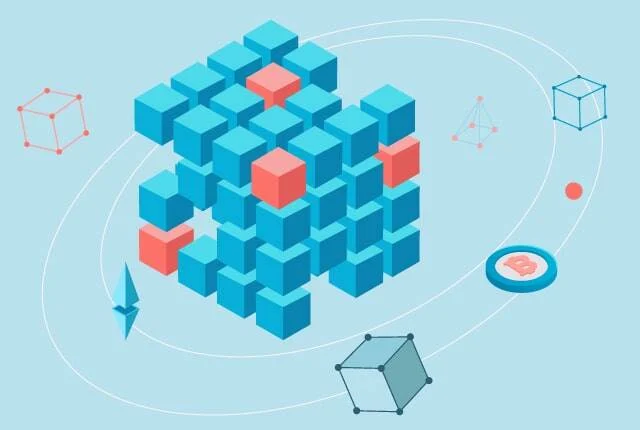Blockchain technology has revolutionized the way we build applications, introducing transparency, immutability, and decentralization into various industries, including finance, healthcare, logistics, and gaming. At the heart of this transformation lie smart contracts, self-executing code that runs on blockchain networks and governs critical transactions without human intervention.
Smart contracts, once deployed, are immutable. That means even the most minor bug can result in catastrophic failures, such as lost funds, data breaches, or system vulnerabilities, with no way to reverse the damage. This high-stakes environment makes blockchain testing services not just important, but essential.
In this blog, we’ll explore why smart contract testing is different from traditional software QA and how blockchain testing services ensure security and performance.
What Makes Blockchain Testing Unique?
Testing blockchain applications isn’t like testing traditional software. While both aim to ensure functionality, reliability, and security, blockchain environments introduce a new set of complexities that require specialized testing approaches and tools.
Here’s what sets blockchain testing apart:
1. Immutable Code and No Room for Error
Once a smart contract is deployed on a blockchain, it cannot be modified. Unlike conventional apps that allow hotfixes or updates post-deployment, blockchain-based systems are permanent. This makes pre-deployment testing critical, every logic path, condition, and edge case must be validated before launch.
2. Decentralized and Distributed Architecture
Blockchain applications operate across a network of nodes, not centralized servers. This means testers must account for consensus mechanisms, latency across nodes, and potential synchronization issues. Standard testing tools often fall short without tailored strategies for decentralized systems.
3. Smart Contract Vulnerabilities
Smart contracts are frequent targets for cyberattacks. Vulnerabilities like reentrancy, integer overflows, timestamp dependencies, and unchecked external calls can result in massive losses. Blockchain testing services focus heavily on identifying and mitigating these risks through thorough security audits and simulation testing.
4. Token Transactions and Gas Costs
Testing must simulate real token flows, wallet interactions, and track gas usage efficiency, as excessive computation can drain user funds. This adds an economic layer to performance testing not seen in traditional apps.
5. Compliance and Network-Specific Behavior
Different blockchain platforms (e.g., Ethereum, Solana, Polygon, Hyperledger) have unique behaviors, APIs, and consensus protocols. Each requires platform-specific test cases and environments, further increasing complexity.
Key Components of Blockchain Testing Services
A robust blockchain testing service covers far more than just functional testing. It combines traditional QA practices with blockchain-specific validations to ensure that decentralized applications (DApps) and smart contracts are secure, performant, and reliable across real-world scenarios.
Here are the core components that define effective blockchain testing services:
1. Smart Contract Testing
This involves testing the logic, conditions, and execution paths of smart contracts to ensure they behave as expected. Tools like Truffle, Hardhat, and Brownie are commonly used alongside custom scripts to validate inputs, outputs, and edge cases.
- Focus Areas: Business logic validation, failure handling, event emission, data persistence.
2. Security Testing
Blockchain systems are high-value targets. Security testing focuses on identifying vulnerabilities such as:
- Reentrancy attacks
- Integer overflows/underflows
- Unchecked external calls
- Front-running
- Logic manipulation
Professional blockchain testing companies use automated tools (e.g., MythX, Slither, Echidna) and manual audits to identify flaws that could compromise funds or contracts.
3. Functional Testing
This ensures that the application performs expected tasks correctly, whether it’s transferring tokens, querying smart contract states, or handling wallet interactions. Testing covers both on-chain and off-chain components.
4. Performance and Load Testing
Performance testing evaluates how the blockchain application behaves under transaction-heavy conditions. It measures:
- Gas consumption
- Network latency
- Throughput (transactions per second)
- Confirmation times across distributed nodes
5. Integration Testing
Blockchain applications often interact with external services such as wallets (e.g., MetaMask), oracles (e.g., Chainlink), and APIs. Integration testing validates the end-to-end flow across all components.
6. Testnet and Simulation Testing
Realistic simulations are run on blockchain testnets like Ropsten, Sepolia, or Mumbai to mimic production environments. These environments allow testers to simulate user behavior, stress test functionality, and verify economic outcomes, without risking real assets.
Benefits of Hiring a Blockchain Testing Company
While internal QA teams may handle traditional software testing effectively, blockchain applications require domain-specific expertise, tools, and strategies. Partnering with a specialized blockchain testing company offers significant advantages, especially when launching high-stakes decentralized apps or smart contracts.
Here are the key benefits:
1. Access to Specialized Expertise
Blockchain testing firms bring in-depth knowledge of smart contract vulnerabilities, platform-specific quirks (like Ethereum gas costs or Solana transaction limits), and decentralized architectures. Their dedicated experience helps uncover issues that generalist QA teams might overlook.
2. Comprehensive Security Audits
A professional blockchain testing company conducts manual and automated security reviews, penetration testing, and vulnerability assessments tailored to your smart contract or protocol. This proactive approach helps protect digital assets from real-world threats.
3. Faster Time to Market
By outsourcing blockchain QA, your development team can focus on building core features while experts handle rigorous test coverage. With reusable test libraries and automation scripts, testing cycles are faster, repeatable, and more efficient.
4. End-to-End Testing Capabilities
From smart contract logic and API integration to wallet compatibility and multi-chain deployment, specialized testing companies offer full-spectrum testing across all components, ensuring smooth user experiences and system reliability.
5. Independent, Unbiased Validation
Third-party testing adds credibility and transparency, especially important in DeFi, NFT, and enterprise blockchain ecosystems. A trusted testing partner offers neutral reports, boosting stakeholder trust and investor confidence.
6. Reduced Costs from Bug Prevention
Blockchain bugs can’t be patched easily and often lead to irreversible financial loss. Early-stage testing helps avoid these costs by identifying critical issues before deployment, reducing the need for costly audits or contract rewrites.
When Should You Start Blockchain Testing?
One of the most common mistakes in blockchain development is treating testing as a post-development task. In reality, effective blockchain testing should begin early and continue throughout the development lifecycle.
Here’s when you should initiate blockchain testing services for maximum impact:
1. During Smart Contract Development
Testing should start as soon as the first versions of your smart contracts are written. Unit tests, logic validation, and gas optimization checks at this stage help catch critical flaws before they become embedded in immutable code.
2. Before Testnet Deployment
Prior to launching your app on a public or private testnet, thorough functional and integration testing ensures that all components interact correctly. This includes validating wallet connections, user flows, and backend processes.
3. Before Mainnet Launch
Mainnet is your production environment—mistakes here are permanent and public. Full security audits, load testing, and simulation testing on the testnet should be completed and signed off on before going live.
4. After Any Major Code Changes
Smart contract upgrades, new feature integrations, or protocol shifts demand retesting of all affected modules to ensure nothing breaks or introduces new vulnerabilities.
5. On a Continuous Basis (CI/CD)
For teams using Agile or DevOps methodologies, integrating blockchain testing services into CI/CD pipelines helps maintain code quality and security with every iteration or deployment.
Conclusion
Partnering with a trusted blockchain testing company gives you access to specialized expertise, comprehensive toolsets, and unbiased validation. It ensures that every component of your DApp, from contract logic to token flows to wallet integration, is tested thoroughly before reaching the mainnet.
Ultimately, blockchain testing is not a final checkbox; it’s a continuous process that safeguards your users, strengthens your brand, and protects the long-term viability of your decentralized solution. If you’re building on the blockchain, investing in the right testing services isn’t optional. It’s the foundation of trust. Contact QASource to know more.
- Why You Need Blockchain Testing Services for Secure Contract
- Blockchain testing ensures smart contracts are secure, error-free, and function as intended. It helps identify vulnerabilities, preventing potential hacks or financial losses.
- Blockchain Testing Services, Blockchain Testing









